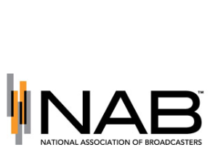
In a landmark move on Monday, President Biden issued an executive order based on the use of artificial intelligence in America, emphasizing safety, job security, and privacy. This order comes as AI is at the forefront of radio’s attention, especially with concerns about how the technology will be used in media’s future.
As this executive order is the first step toward government regulation of artificial intelligence, Radio Ink reached out to two experts in broadcasting’s AI sector for their thoughts: David Perry, Copyright Attorney at Blank Rome in Philadelphia, and Raoul Wedel, CEO of Wedel Software and Adthos.
Wedel told Radio Ink, “President Biden’s recent Executive Order on AI seeks to ensure America leads in AI innovation and addresses potential risks in several different categories:
“Open source AI systems are freely available for anyone to use, posing challenges in ensuring compliance with safety, security, and privacy standards set by the Executive Order. Broadcast radio companies must take extra precautions when using open source AI technology for content creation, distribution, or advertising.”
“The Executive Order establishes standards for detecting AI-generated content and authenticating official content. However, it does not explicitly prevent the use of deepfake video or audio technology. Broadcast radio, especially news, may face challenges in verifying the authenticity of AI-generated content, which could potentially mislead or harm listeners.”
“Stricter data privacy rules could impact how radio stations collect and use listener data. Radio companies must ensure that AI systems, adhere to privacy-preserving techniques and future data privacy regulations.”
“Broadcast radio companies need to ensure AI algorithms do not contribute to discrimination or bias in content recommendations or advertising. This involves carefully reviewing and monitoring AI systems.”
“The Executive Order calls for clear identification of AI-generated content. Broadcast radio stations using AI systems must ensure content generated by AI is clearly labeled for listeners. The changing job landscape due to AI advancements requires broadcast radio companies to invest in training and development for employees. This includes helping workers adapt to new technologies and tools.”
Perry, who will be addressing this topic at Forecast 2024 on November 15, said, “Let me say this: The Executive Order is not at all overtly directed to radio/media providers, but it is clear that guideposts are being planted that those providers need to see on the horizon and prepare to navigate. At least five areas should pique the interest or radio/media, such as the Order’s statement on protecting Americans from AI-enabled fraud and deception, and its stated goal of creating standards and best practices for detecting AI-generated content and authenticating official content (which is particularly important for radio operators who disseminate government content).”
He added, “Noteworthy is the desire to ‘set an example for the private sector.’ Additionally, the Order’s plan to address algorithmic discrimination, to catalyze AI research across the US, and to accelerate the rapid hiring of AI professional – they all broadcast key areas for growth for radio/media, as well as the need for raising the technology bars higher than ever before.”
“Even the Order’s goal of promoting a fair, open and competitive AI ecosystem is something to watch for radio and media, where disruptive technologies are being crafted on almost a daily basis, and longstanding players are reminded to work every day to maintain their competitive edge as the field of new players opens up even more than ever before.”










Naahh, they’ll just tack it onto someone’s existing job – or automate it. (Sarcasm intended.)
New Executive Position: AI Evaluation and Control. A Senior Watch Dog(s) to make sure AI is reliable for Licensed Broadcast Consumption.